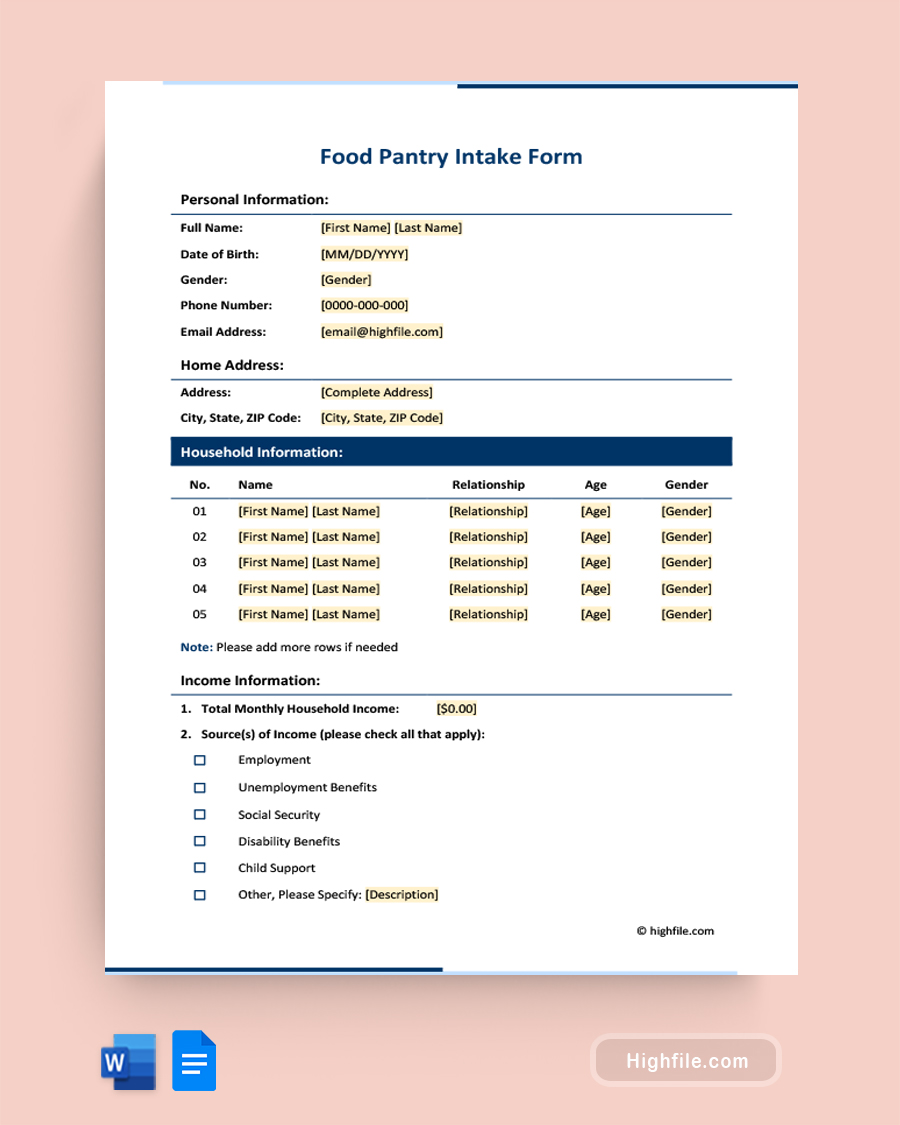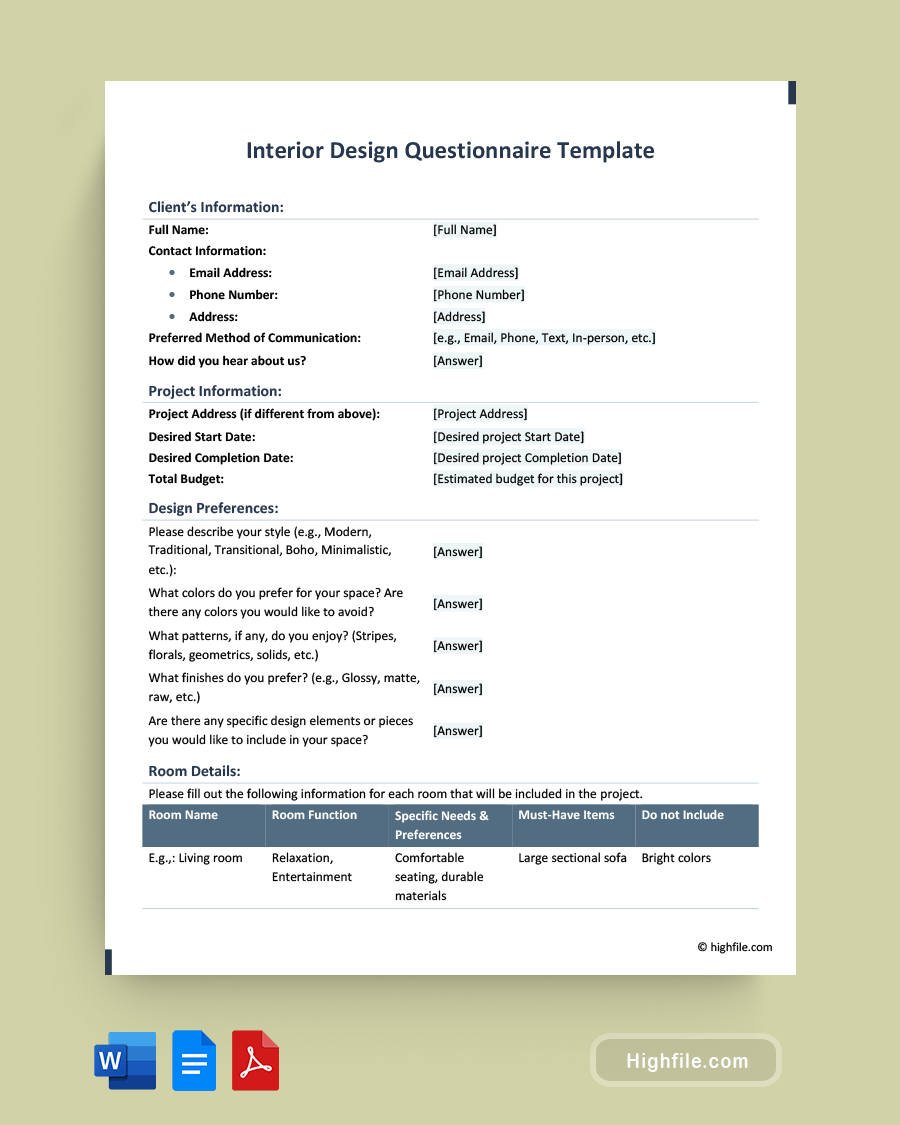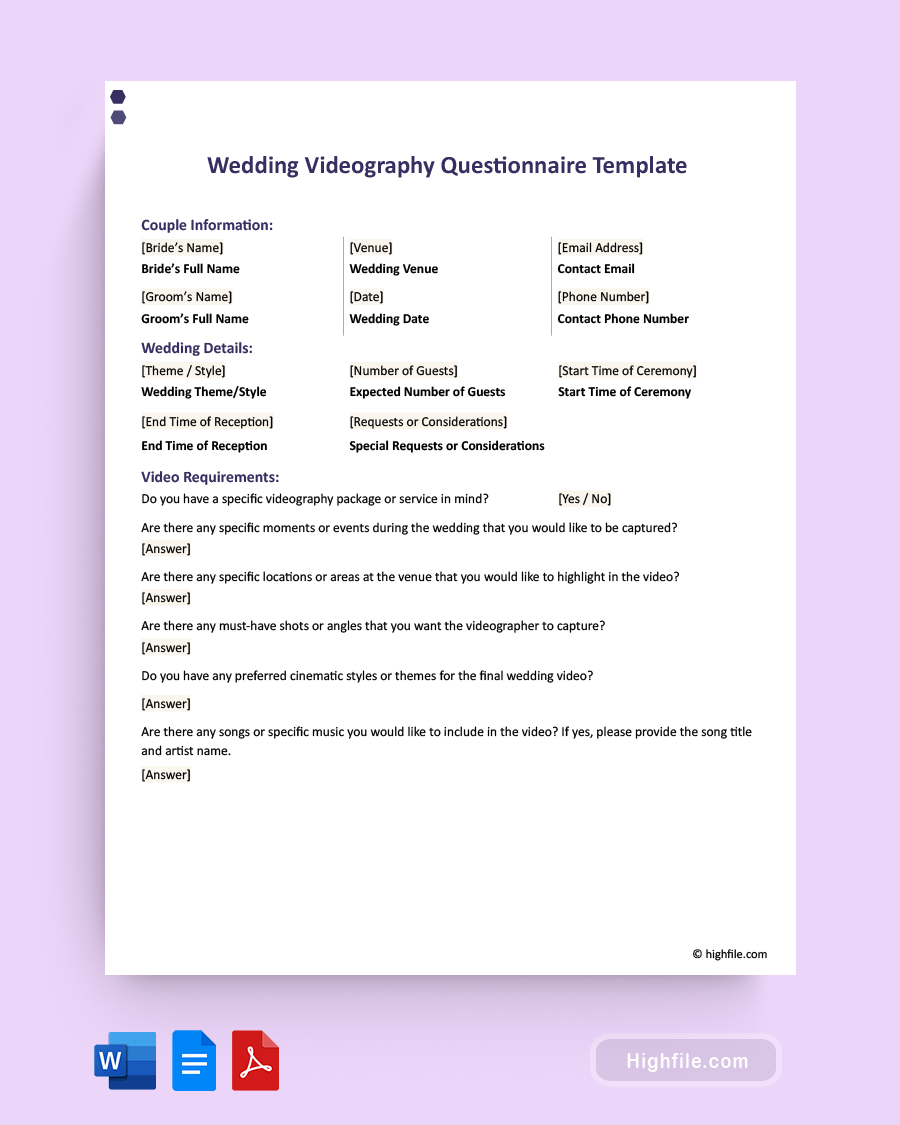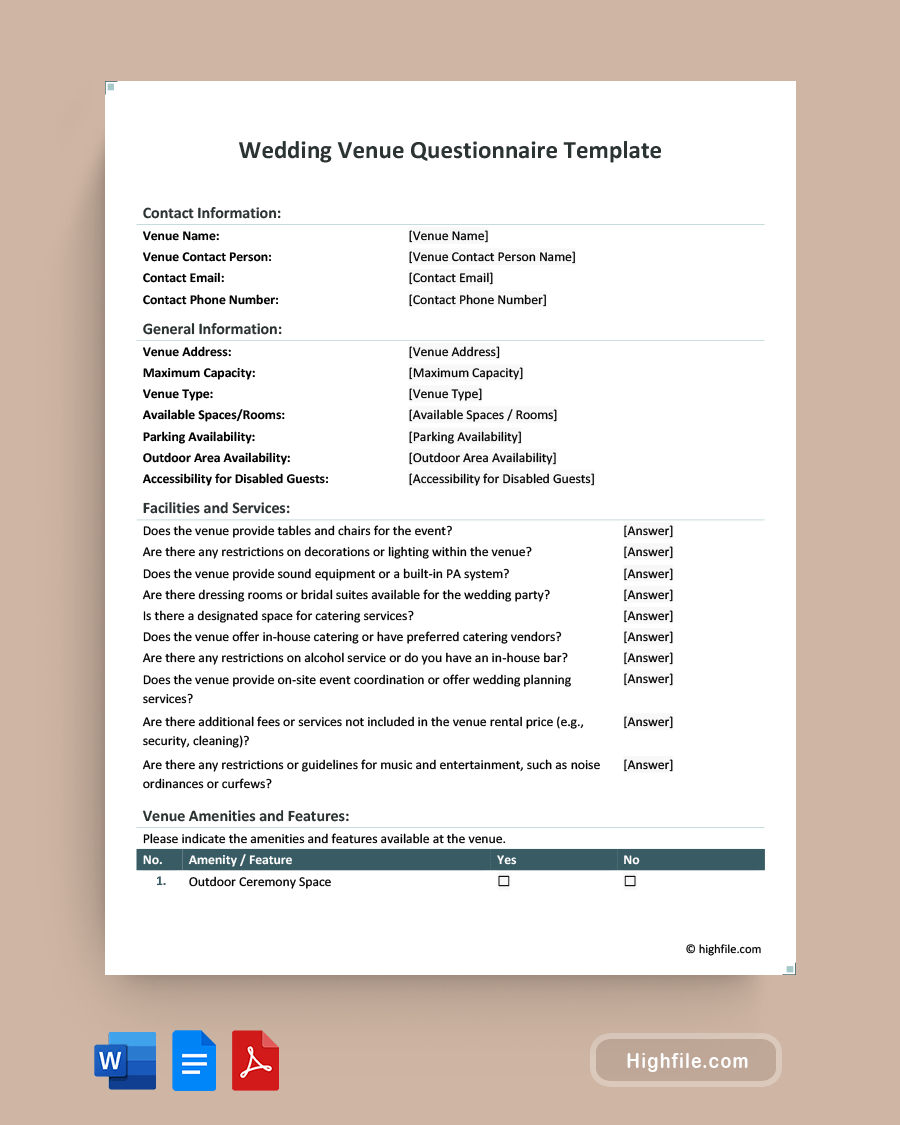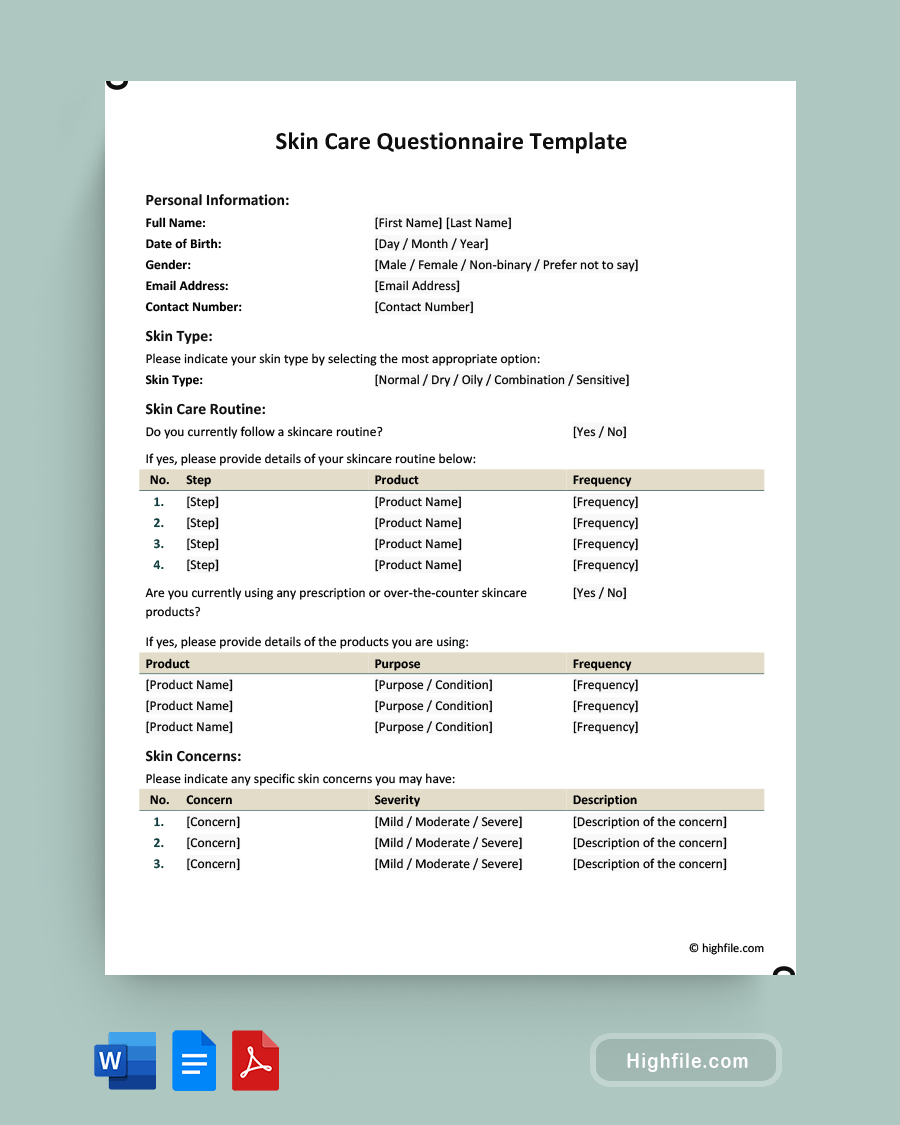Contents of the Template:
- Personal Information: This section captures the basic identification details of the applicant, ensuring clear identification.
- Home Address: By collecting residential details, the organization can potentially gauge the accessibility or proximity of the beneficiary.
- Household Information: This part gives a clear picture of all members in the applicant’s household, allowing for a comprehensive understanding of the family dynamics and total members to support.
- Income Information: Understanding the economic background helps in assessing the level of assistance required.
- Public Assistance: Identifying any ongoing assistance ensures that resources are distributed without overlap, maximizing the benefit to the needy.
- Food Preferences and Allergies: Catering to specific dietary needs or restrictions is essential to ensure that the distributed food is both useful and safe for the beneficiaries.
- Agreement and Consent: This section establishes trust and ensures that the information provided is accurate and genuine.
Why Use This Template:
- Efficiency: Streamlines the data collection process for organizations, ensuring that they capture all the necessary information in one go.
- Clarity: Organized sections make it easier for applicants to fill out the form without confusion.
- Customizability: Being available in multiple formats allows organizations to easily modify and adapt the form according to their unique requirements.
- Consistency: Using a standardized form ensures uniformity in the data collected, making it easier to analyze and allocate resources.
Ideal For:
- Food Pantries: Clearly, the primary use, helping these charitable entities gather all the necessary information to serve those in need.
- Community Centers: Where local residents might require assistance and support in times of crisis or general need.
- Religious Institutions: Many churches, mosques, temples, and synagogues offer assistance to their communities and can benefit from a standardized intake form.
- Disaster Relief Organizations: In times of natural disasters or emergencies, having a structured way to assess the immediate needs of affected individuals can be invaluable.
- Social Workers: Professionals helping individuals navigate various social services might find this template handy for clients in need of food support.
